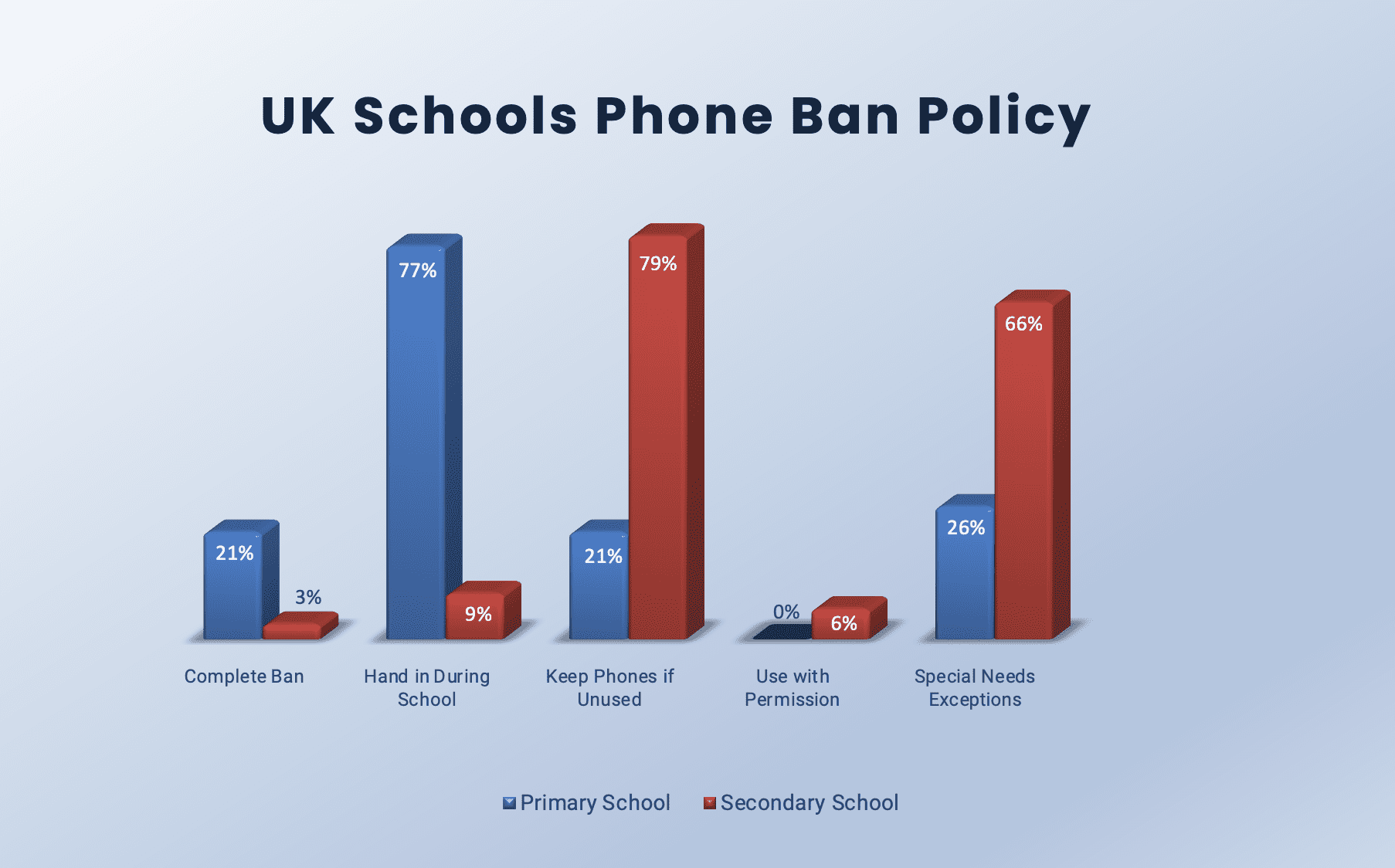Over 90% of UK Schools Enforce Mobile Phone Bans a groundbreaking national survey reveals that the overwhelming majority of schools in England have implemented restrictions on mobile phone use during school hours.
The research by Children’s Commissioner for England, shows that 90% of secondary and 99.8% of primary schools now have a phone ban in place.
This movement reflects growing concern among educators and parents about the negative effects of smartphones on children’s mental health, safety, and their ability to focus in the classroom.
Growing Support for a Nationwide Ban
A study led by Dame Rachel de Souza shows widespread implementation of mobile phone policies.
“I personally support a national mobile phone ban in schools,” said Kebede. “It would reduce stress for school leaders, teachers, and families.”
Kebede also raised the alarm over increasing exposure to inappropriate digital content. This echoes concerns explored in our blog on Will AI Create More Jobs by 2030?, where we discuss the need to balance tech advancement with human well-being.
The Bigger Issue: Online Safety at Home
While schools take steps to regulate phone use, online safety remains a concern outside the classroom. A recent YouGov poll reveals:
- 25% of children aged 8–15 spend more than four hours a day on phones, tablets, or gaming consoles.
- 26% use screens for two to three hours daily.
- 46% of kids aged 8–17 have seen offensive or violent content online.
Dame Rachel de Souza has called for stricter regulations on tech companies, likening the digital industry’s influence to that of tobacco companies in the past.
“It’s time to get serious about what children are exposed to online and hold tech firms accountable for their impact on young minds,” Dame Rachel de Souza.
This push toward digital responsibility closely mirrors our analysis in Elon Musk’s xAI Launches Grok 3, where transparency and ethical AI use are key themes.
How Schools Are Managing Phone Use
Despite broad adoption of restrictions, enforcement varies from school to school. Here’s a breakdown:

Interestingly, schools experiencing behavioral challenges are more likely to enforce strict policies, while those concerned mainly with online safety do not always adopt tighter restrictions.
If you’re interested in learning how technology trends are shaping careers and freelance skills, check out our post on Best Freelance Skills in 2025.
School Leaders Report Positive Results
Headteacher Kirsty Rogers of Aureus School in Oxfordshire shared that banning phones has significantly improved attendance and behavior.
“Many kids get phones in year four or five. Instead, parents should consider basic phones until the child is at least 14,” she advised.
To support parents, she plans to host sessions highlighting real-world data on social media risks and digital wellness.
This ties into broader efforts to prepare students not just academically, but also for digital literacy—something we emphasize in our guide to High-Demand Jobs in Pakistan, where digital awareness is a vital skill.
Government and Political Perspectives
Over 90% of UK Schools Enforce Mobile Phone Bans Education Secretary Bridget Phillipson reiterated her support for schools managing mobile phone use independently but criticized the Conservative Party’s call for a mandatory ban, labelling it political rather than practical.
Labour leader Keir Starmer dismissed the Conservatives’ proposed Schools Bill amendment as unnecessary, arguing that schools already have the authority to enforce appropriate policies.
Still, many in the education sector—including Kebede—agree that responsibility lies not only with schools but also with families and tech companies.
If you’re curious about how remote work and tech shifts are affecting global policy, you might find our article on 35 Top Companies Hiring Remote Freelancers in 2025 insightful.
Looking Ahead: A Collective Responsibility
As mobile phone bans become standard practice in UK schools, the challenge now lies in ensuring children’s online safety beyond the school gates. Experts call for a collaborative effort involving:
- Educators
- Parents
- Policy makers
- Tech companies
Only with this collective approach can we protect the next generation in an increasingly connected digital world.
What Do You Think?
Do you believe banning phones in schools is enough—or should tech companies and parents play a larger role in protecting kids online? Share your thoughts in the comments! 💬
More from Education
Perplexity Launches AI Tool to Create Dashboards and Spreadsheets Instantly
Artificial intelligence is changing how we handle data—and fast. Whether you're building monthly reports or comparing sales trends, most tools …
OpenAI Flex Processing: An Affordable AI for Low-Priority Jobs
AI is transforming how we perform tasks, acquire knowledge, and express creativity.. What if you could use high-performance AI while …
















